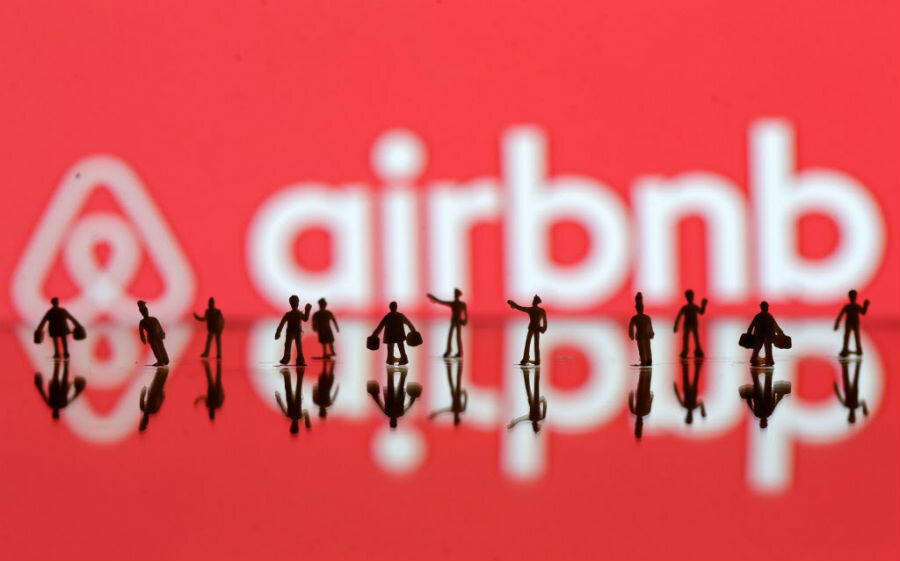Racial discrimination is Airbnb's chief challenge, CEO says
Loading...
While Airbnb’s home rental platform has been beleaguered by disputes with city councils from New York to San Francisco, the most trenchant challenge facing the company is discrimination, its chief executive Brian Chesky said on Tuesday.
Speaking at the tech conference in Aspen, C.O., Mr. Chesky admitted that the company was late to acknowledge that users of color were being discriminated against on the platform, and it was a problem that the designers, all white men, did not anticipate in their original design. But, he said, the company has “zero tolerance” toward the “racists in the world,” and the eight-year-old company would continue to work to find solutions.
Airbnb’s acknowledgment comes after a series of events that brought the issue of racial discrimination on the platform into the public spotlight. These include a hashtag trending on Twitter – #AirbnbWhileBlack – where black users shared their experiences of rejection or discrimination while using the site, the development of two similar platforms geared towards people of color, and a class-action lawsuit against the company based on alleged racial discrimination.
Empirical research has also confirmed racial bias on the site, where users can pick and choose who they rent their houses and apartments to based on the potential renters' profiles.
That study, released by Harvard Business School as a working paper last year, found that “requests from guests with distinctively African-American names are 16 percent less likely to be accepted than identical guests with distinctively White names.”
The researchers suggested that the platform instead use pseudonyms, instead of the current profiles, which include a photo and name.
However, this would run counter to the founders’ vision of the sharing economy, which is based on mutual trust between strangers, The New York Times reports.
“Access is built on trust, and trust is built on transparency. When you remove anonymity, it brings out the best in people,” Chesky said in a 2013 statement announcing the site’s “Verified Identification” feature. “We believe anonymity has no place in the future of Airbnb or the sharing economy.”
But as the sharing economy becomes more established, pioneered in the mainstream by platforms like Airbnb and Uber, the problems that come with it can become ingrained as well. Some of those are based in the fact that these platforms operate outside of traditional parameters of regulation, like hotel safety standards – including, perhaps, civil rights laws.
“What Airbnb and many other sharing economy businesses are doing is ... moving hundreds of thousands of transactions out of the realm where they are unquestionably governed by public accommodations laws and into a realm where the legality is at best unclear,” Nancy Leong, a law professor at the University of Denver, told The Guardian in May. Earlier this year, Professor Leong published a paper in the Georgetown Law Journal on how civil rights law applies to companies like Airbnb.
Airbnb itself has a discrimination policy that “require[s] all users to comply with local laws and regulations,” including federal anti-discrimination law, and asks users to report discrimination. But the online community is largely self-policing, and the burden of complying with these laws falls on the users, not the company.
Title II of the Civil Rights Act of 1964, which applies to public accommodations, ensures nondiscriminatory rental practices but excludes people who live in their homes who rent five or fewer rooms. This could have an effect on any legal recourse for those who have experienced discrimination holding up in court, as Leong points out in the Guardian.
This means that the company, if it is not viewed as the sum of its parts, may not be able to be held accountable in a court of law.
Airbnb itself has taken action against users who discriminate, as in the case of a North Carolina man who used racial slurs in an incident that Chesky called “disturbing and unacceptable” on Twitter.
Chesky’s discussion of discrimination on the platform at the Fortune technology conference yesterday is not the first time that he has openly discussed the issue.
Diversity and inclusiveness was the theme of the company’s annual tech conference in June – a choice that experts said may have partially been a tactic to attract more diverse applicants to the company that is currently 63 percent white. Hiring a more diverse workforce is an essential part of fixing the platform, its chief executive said this week.
In a separate statement printed in the New York Times, the company said it would “welcome the opportunity to work with anyone that can help us reduce potential discrimination in the Airbnb community.”
This report includes material from Reuters.





